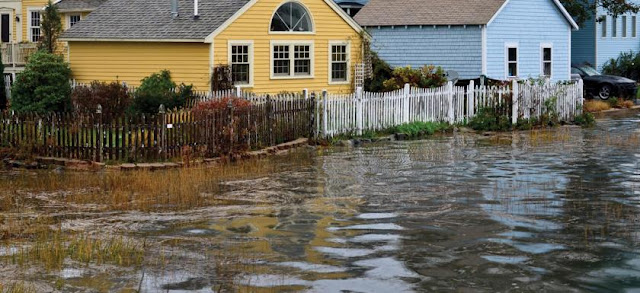Impact of Global Warming: Part of the alarm raised about global warming is related to rising water temperatures, especially in the ocean. Scientists are studying water warming around the world to determine the rate of change.
 |
| Impact of Global Warming: Water Temperature Increases Significance |
The consequences of global warming are very broad. One of the most damaging effects of global warming is that, when sea water warms up, it impacts tropical storms. The storm that will become a category 3 storm in recent years is category 4 or more. This is because they are energized when taking warmer sea water.
In fact, there has been a significant increase in this high intensity storm in the past 35 years. This could be due to global warming. In 2005, the Atlantic was bombarded with 27 tropical storms that were strong enough to accept the name. 15 of them developed into storms.
Five of these storms reached category 4 storm strength. Four of them actually got worse, in category five. Hurricane Katrina made a terrible sign on history in August 2005. It became the most expensive typhoon in American history. It's also one of the most deadly. Global warming has left destruction in the form of more severe storms.
Because global warming causes temperatures to rise in the oceans, glaciers and ice sheets melt faster. One particular ice sheet in Antarctica, the northern part of the Larson B layer, collapsed in recent years. Scientists realized when they realized how quickly the ice sheet could be destroyed.
The polar ice caps disappear with amazing speed too. It dissolves at 9% per decade. This aspect of global warming is a sure reason for alarm. In the last 40-50 years, the thickness of ice in the Arctic has dropped by 40%. Ice on earth is useful for maintaining environmental balance.
The eternal sea ice at the North Pole has receded too. There was the lowest record in sea ice square miles in 2005. Only two years later, in 2007, the record was broken with half a million square ice less than last year in 2005. Global warming really had an impact. in Arctic sea ice. Some scientists predict that all sea ice will disappear by 2040.
Global warming can also cause sea level to rise when ice melts. When this happened, the islands disappeared and coastal communities were flooded. Suggestions have been made about the levels that can be reached by water levels, anywhere from 10 to 23 inches in 2100.
Global warming has the potential to make the earth a very unfriendly place to live in. Increasing temperatures in ocean waters is a clear indication that the process has begun. With the melting of ice on glaciers, ice, and at sea, only a matter of time before global warming has a far more dangerous effect. It's up to people in the world to do what they can to make the future look brighter.






0 comments